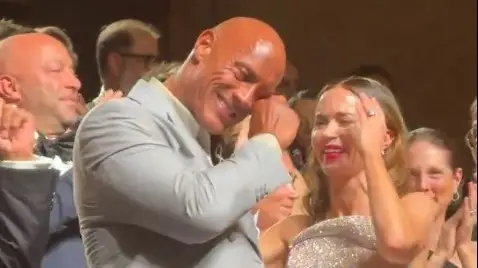
Every year when film festivals come around casual fans are left in a bizarre state of shock at the idea of being in a movie theatre for a 10 minute-plus-standing ovation.
Whether it be Cannes Film Festival or the Venice Film Festival, long standing ovations have become a sign online of how much critics love and respect the newest films contending for awards each year.
This has become particularly discussed due to The Rock’s new film The Smashing Machine which received a 15-minute standing ovation at the Venice Film Festival this week.
Starring alongside Emily Blunt, the Benny Safdie film stars The Rock as ex-UFC fighter Mark Kerr in a return to non-blockbuster filmmaking for Dwayne Johnson.
Advert
Speaking to experts however, we have dug into what actually causes these long film festival standing ovations, and it’s not as simple as good films receiving long ones and bad films receiving short ones.
One important aspect of standing ovations to note is that oftentimes the context surrounding the film is vital.
The applause is often specifically directed at the cast and crew of the films screened.
Yasmine Kandil, DiscussingFilm’s Senior Film Critic, noted that short-lived ovations can oftentimes be due to the stars leaving early.
In the case of veteran filmmakers, the applause can be specifically directed at beloved members of the industry, shown clearly by Gus Van Sant’s Dead Man’s Wire’s 11-minute standing ovation featuring chants of 'Gus! Gus! Gus!'
This also explains the majorly long applause for The Smashing Machine, with Emily Blunt and Benny Safdie both highly respected within the industry, and Dwayne ‘The Rock’ Johnson widely praised for his outstanding performance as Mark Kerr.
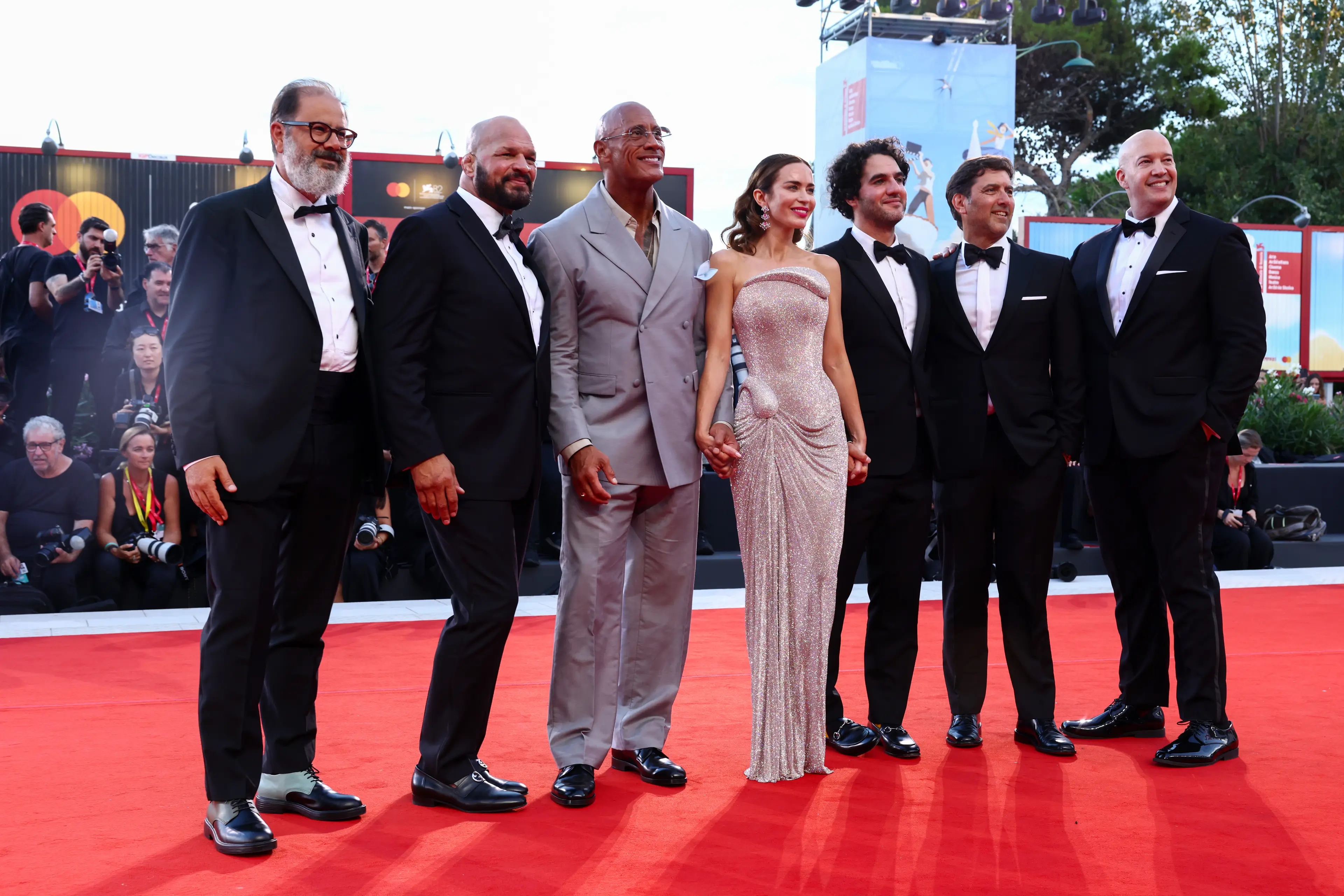
Siddhant Adlakha, an award-winning Rotten Tomatoes verified critic, noted that what is often left out is that for major films cameras often will go row by row showing major members of the cast and crew for roughly a minute each.
Therefore ten minutes of standing ovation can sometimes simply be a minute of applause for the ten most important members of the cast and crew.
Kelsey Weekman, Senior Entertainment Reporter for Yahoo News, also pointed out that films are undeniably getting longer and longer standing ovations.
She stated that, while there are a number of factors, more people are using them as a measure of how loved certain movies are and ‘how they might perform during awards season’.
Here are the full responses from the expert film critics as to why film festivals give such long standing ovations, and what the misconceptions are about them.
Kelsey Weekman – Senior Entertainment Reporter for Yahoo News
“They're definitely getting longer — I think that's because people are paying attention to them as a measure of how good and loved by festival audiences certain movies have and how they might perform during awards season. Not getting a long standing ovation can lead to negative coverage of a film.
“I think people recognize that the film with the longest ovation might not be the best, but a film with an under-five-minute ovation might not be amazing! I also think that when you're part of a long standing ovation as an audience member, it feels like an accomplishment!
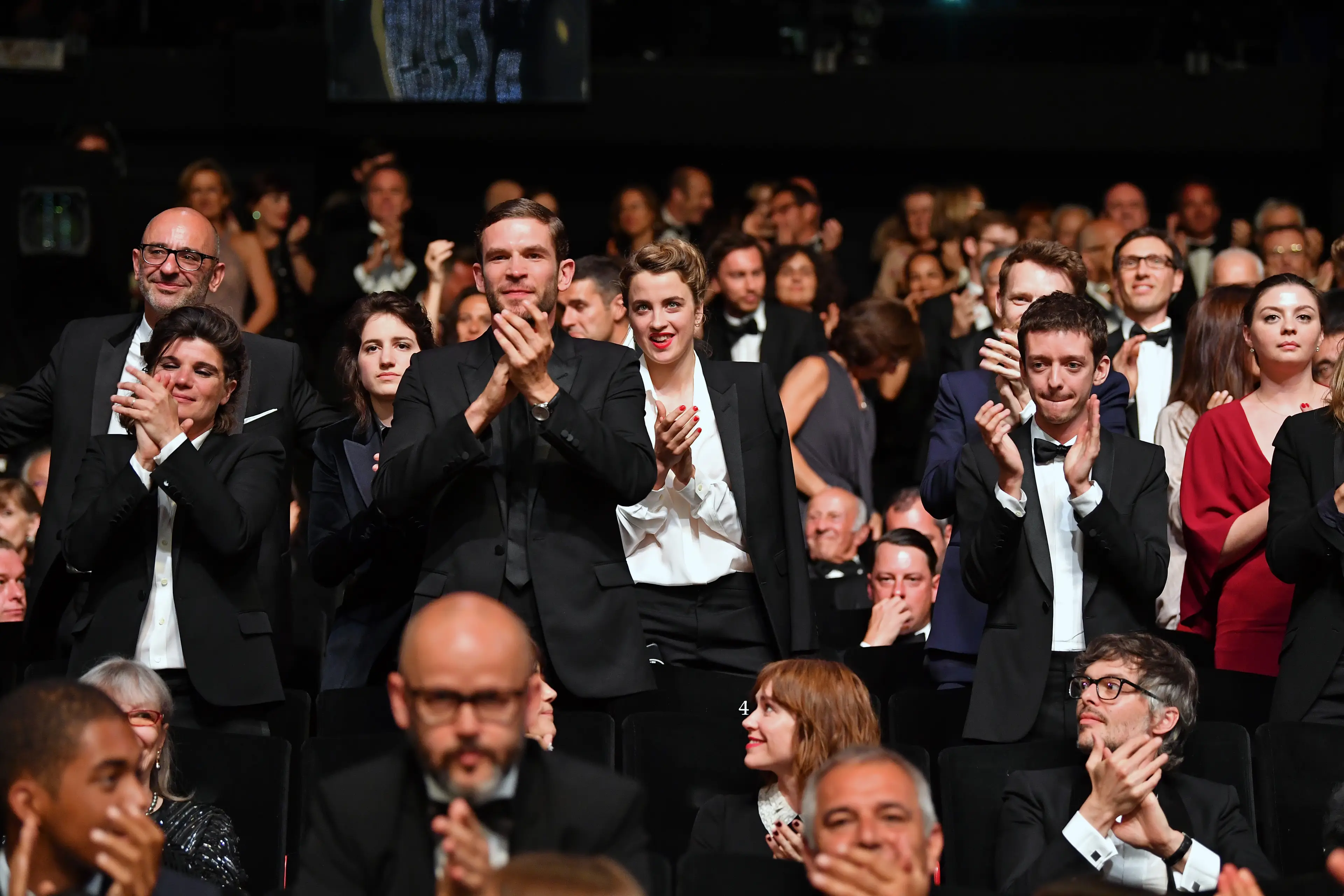
“Why stop clapping when you could be part of something iconic? You can say you were there for the best movie and the longest ovation!
“Especially if the cast and crew are getting emotional. Sometimes an ovation ends because someone takes a microphone and stops talking, so there's peer pressure to just keep going until that's done.”
Siddhant Adlakha – Award-Winning Rotten Tomatoes Verified Critic with reviews in The Guardian, New York Times, Variety, and Time Magazine
“The timing of standing ovations at major film festivals goes back quite a way, to the turn of the century, though the more recent rise to prominence is likely owed to social media, where these headlines can be aggregated without context.
“What tends to be missing from a lot of this chatter is who or what the standing ovation is actually for, because the idea that the length of an ovation inherently correlates to quality is misleading if there isn’t full reporting of the festival atmosphere. Most of the time, these ovations are for the cast and crew who are present at the premieres.
“They’re the ones being applauded, by the people immediately around them, and more prominent names are likely to be shown more adulation.
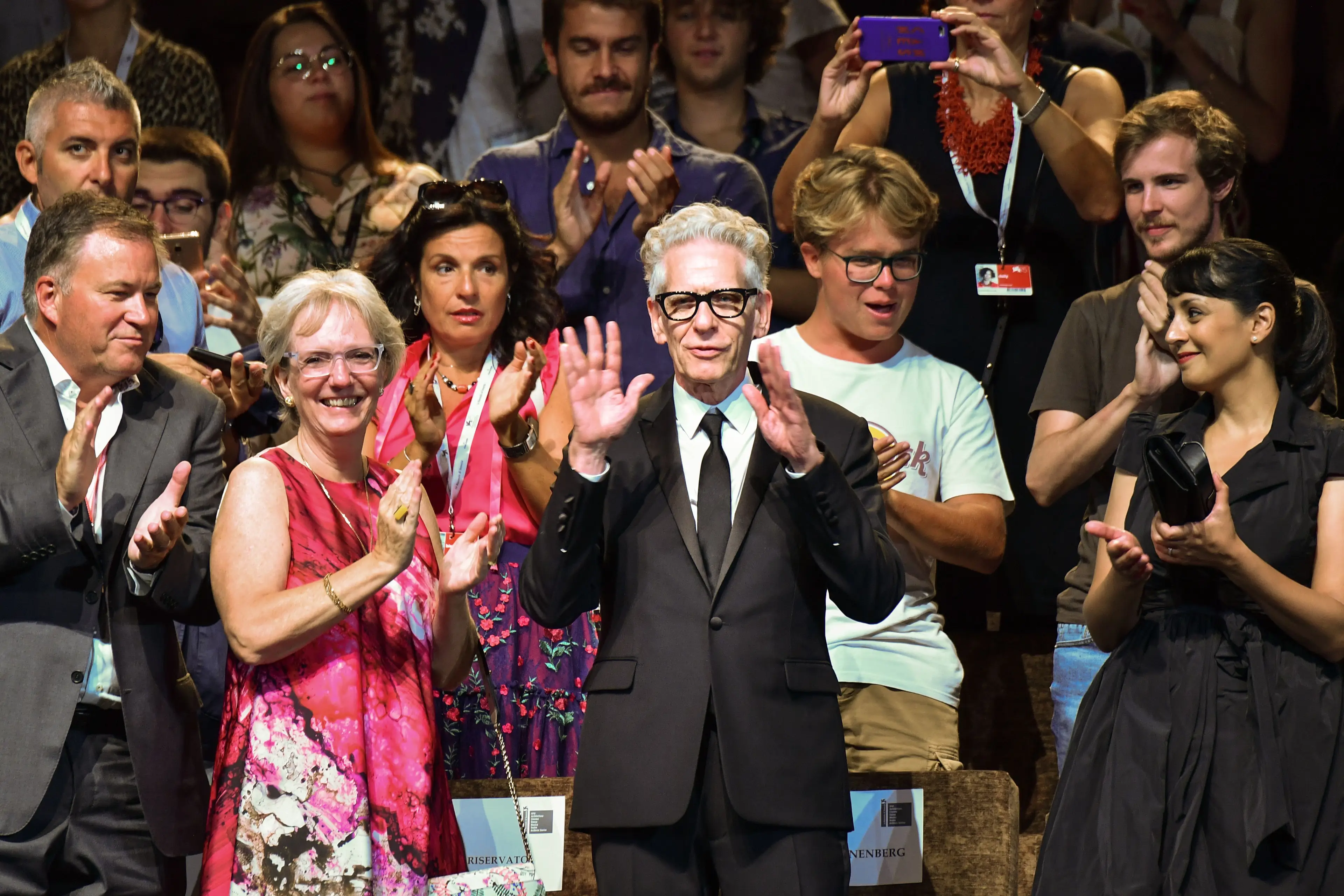
“At a festival like Cannes, where the marathon applauding most makes headlines, what often isn’t reported on is that a camera goes down the row of each major cast and crew member and holds on each them for close to a minute as their faces are broadcast on the screen, as each one receives their applause.
“If people are under the misapprehension that these ovations are just audience members standing around and clapping at nothing or no one, that’s because in an age of rampant anti-criticism and the death of expertise, it’s much easier to reduce a film to a number for the sake of clicks or shares than it is to actually talk about it meaningfully—how long people clapped, what Rotten Tomatoes score it has, how many Oscars it might win, and so forth.
“These things are much easier to fit into viral clips and bite-sized tweets or headlines for engagement purposes, compared to, say, actual substantive discussion about a movie, but that’s what happens when we’re all at the mercy of algorithms.”
Yasmine Kandil – Senior Film Critic at DiscussingFilm
“To some extent it’s a gesture of good will. I’ve never been to (or heard of) a premiere that hasn’t had a standing ovation. Sometimes the length of it is a genuine reaction to the film and can be attributed to how strong or weak a film is.
“Other times it will be longer if a veteran actor or filmmaker is involved with the project. The last variable is how long the cast and filmmakers choose to stay for.
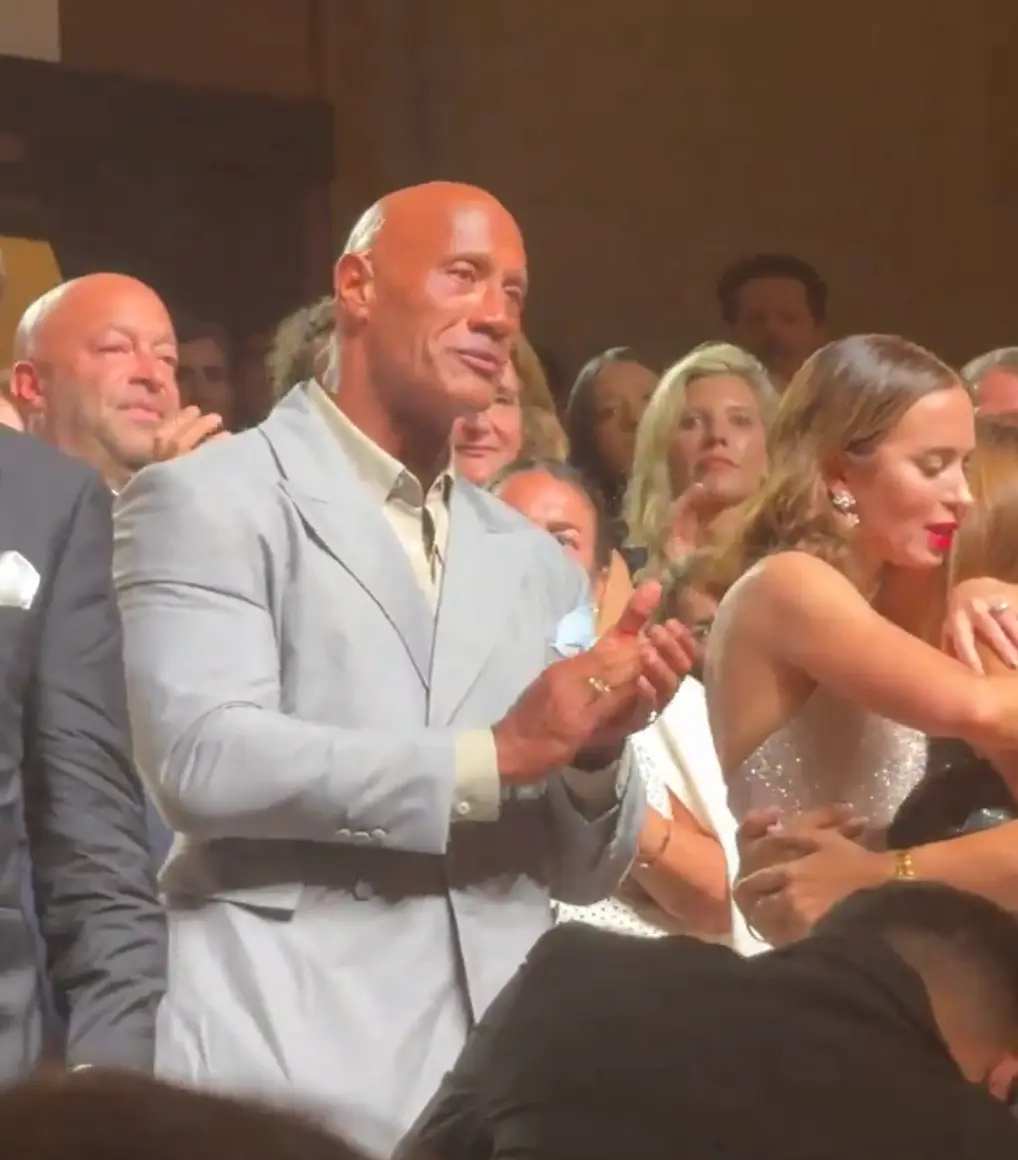
“I’ve seen people do a quick couple of minutes and then they walk out the door, capping their own ovation time. Sometimes an ovation feels really sincere in the room, but it can also feel very forced.
“There reaches a point where it doesn’t even sound like clapping anymore and everyone accidentally gets into one rhythm, that’s when it gets really awkward.”
Topics: Dwayne Johnson, Cannes Film Festival, Film, TV and Film, Emily Blunt